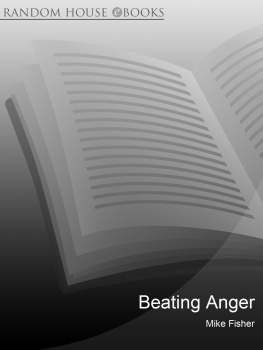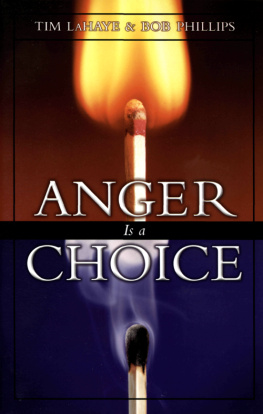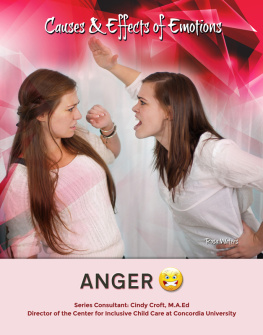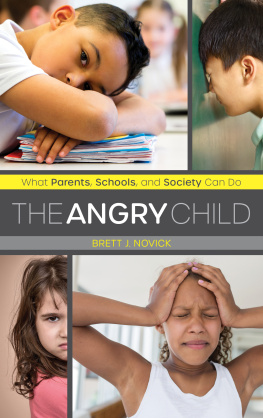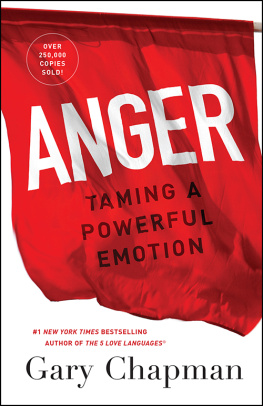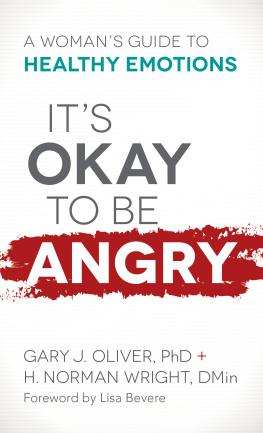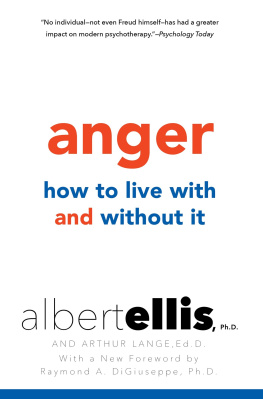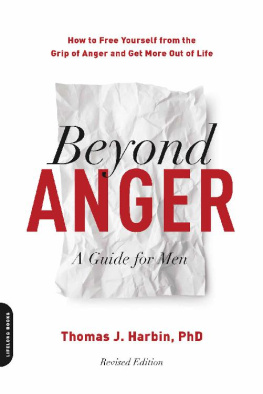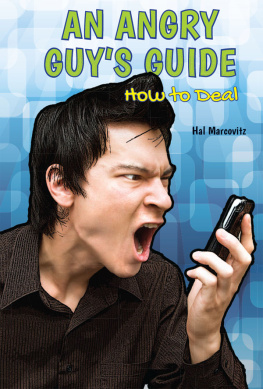Contents
About the Book
We all feel angry at times. It can be an uncomfortable emotion, yet it is almost a taboo subject. We get very little guidance in our culture on how to deal with it, and the guilt or violence that may accompany it.
Here is the perfect book to help anyone from 1675 years old to beat their anger or help anyone else to do the same. Aimed at parents, families, young adults and teachers, social and youth workers, health care professionals, managers, customer service departments, psychotherapists and counsellors there cannot be many men or women who have not felt uncomfortable when they are angry, and wondered what to do about it.
The British Association of Anger Management (BAAM) is considered the leading specialist organization in the field. Founded by Mike Fisher in 2001, its mailing list reaches approximately 10,000 people a month and it receives enquiries from all over the world, and from all walks of life.
Beating Anger is endorsed by BAAM, and used on all its anger management courses. It explains what anger is, what triggers it, the various different types of anger and its substitutes how to heal emotional aggression, and the 8 Golden Rules of Anger Management.
About the Author
Mike Fisher is the founder of the British Association of Anger Management (BAAM). Trained in counselling, psychotherapy, facilitation skills and anger management, he has helped thousands of individuals over the past 17 years achieve clarity and maturity. Highly experienced with the media, Fisher runs anger management workshops in the UK, Ireland, South Africa and the United States.
Beating Anger
The eight-point plan for coping with rage
Mike Fisher

Dedication
This book is dedicated to Gloria and Peter Barter, who generously financed my first year at art school. Thank you for teaching me to believe in myself and loving me in the way that you did.
Introduction
Sloth, apathy and despair are the enemy, anger is not. Anger is our friend. Not a nice friend, not a gentle friend but a very loyal friend. It will always tell you when you have been betrayed. It will always tell when we have betrayed ourselves. It will always tell us that it is time to act in our own best interests. Anger is not the action itself, it is actions invitation.
Elspeth Weymann
IF YOU HAVE chosen this book, you either have personal experience of anger issues or you know someone who does, and you love and care for them enough to try to understand their behaviour. Anger may be the most complex emotional state a person can enter. If you do not understand the various aspects of anger and find yourself lost in the perpetual cycle of angry feelings, you may eventually drown in your own rage, hate and despair.
This book has been written to help people find a way to deal with the anger in their lives. We will be exploring the many styles of anger and discovering which one applies to you, as well as learning how to recognise an angry person when we see one. Whether you think you have a problem with anger or not, you will find information in these pages that will help you to understand and manage both your own and other peoples anger. You may even find yourself becoming a role model for the healthy expression of anger.
So what does an angry person look like? In truth, an angry person can look just like you, me or anyone else you know. Anger isnt just the prerogative of those who make the newspapers; all of us experience it to one degree or other. The issue for those of us who have a problem with anger is not that we feel anger; it is the way that we express our anger that leads to hurtful or harmful episodes for all concerned. We need to learn how to deal with anger and understand its rightful purpose in our lives.
This book is both educational and experiential. As well as information, it includes exercises designed to question your beliefs and challenge your logic, exposing mistaken notions and perhaps even distorted thinking patterns. Through completing these exercises you will begin to gain a clearer understanding of yourself and discover tools that will equip you to deal more positively with any potential conflict situation in the future. Your task is to study this book and make your anger a personal project. If you do this, the book will become a powerful vehicle for transforming your life.
My story
I know the suffering that anger can inflict. Indeed, it was my own struggle with anger that led me to work in the field of anger management. My anger was the final stumbling block to my becoming psychologically healthy and emotionally stable.
In my early teens, although I often felt angry, I quickly stifled strong angry feelings because I felt scared of them. I thought that if I expressed them my friends would not like me. I started to believe that, apart from the Incredible Hulk, I was probably the most angry person in existence, since no one seemed to speak about or openly express their feelings of anger. Initially, my anger wasnt explosive; it was implosive. By this I mean that I turned my anger in on myself, which manifested directly as depression and indirectly as self-harming behaviour, such as smoking too much dope, with all its physical and psychological consequences.
One of my outlets for my frustration and rage was through art. I feverishly expressed myself in drawing. Later, I started having relationships with girls and began to take my anger out on them, not through physical aggression but through cruel and pathological game-playing. I was terrified of allowing people to come too close to me. I became ashamed of who I was and ashamed of my behaviour, but I could not recognise that I needed to change or, indeed, that change was even possible.
The way I expressed anger during these implosive years was passive aggressive (we will explore this further ). I came across as being very superior, judgmental and critical of others. I would never suggest that I was angry with them. Instead, I would make sarcastic, cynical and patronising comments to wind them up deliberately. And if I didnt do this, I would spread rumours about them, talk behind their backs and generally do whatever I could to hurt them.
Even when I started training as a counsellor, in my early thirties, I avoided overtly expressing my anger. Confrontations where out of the question. (Occasionally, I still find myself behaving in that way today, despite now being much more comfortable with my own and other peoples anger.) Then when I qualified, I managed to work only with those therapists who were not challenging and confrontational nice therapists because my fear of dealing with my anger was so great. I remember thinking once that the world would be a much better place if people simply did not have angry feelings. I for one would certainly be more comfortable and much happier! When I look back now I have to laugh at myself. How could I possibly have thought it would be so much easier if angry feelings were eradicated? I have certainly come a long way since then.
When I was in my late thirties I reached a turning point. Someone I cared for, and believed cared for me, betrayed me or so I believed. Now I realise that in fact I set myself up for betrayal. I went completely ballistic. I was on the rampage for months like a bear with a sore head and a bruised ego. Yearss worth of imploded anger rose to the surface. I felt invincible; nothing could touch me or get at me. I no longer cared what other people thought of me; in fact, I believed it didnt matter what other people thought of me. My anger came out whenever and wherever. I was completely out of control but, boy oh boy, was I having fun with this new-found power inside me!
Next page
